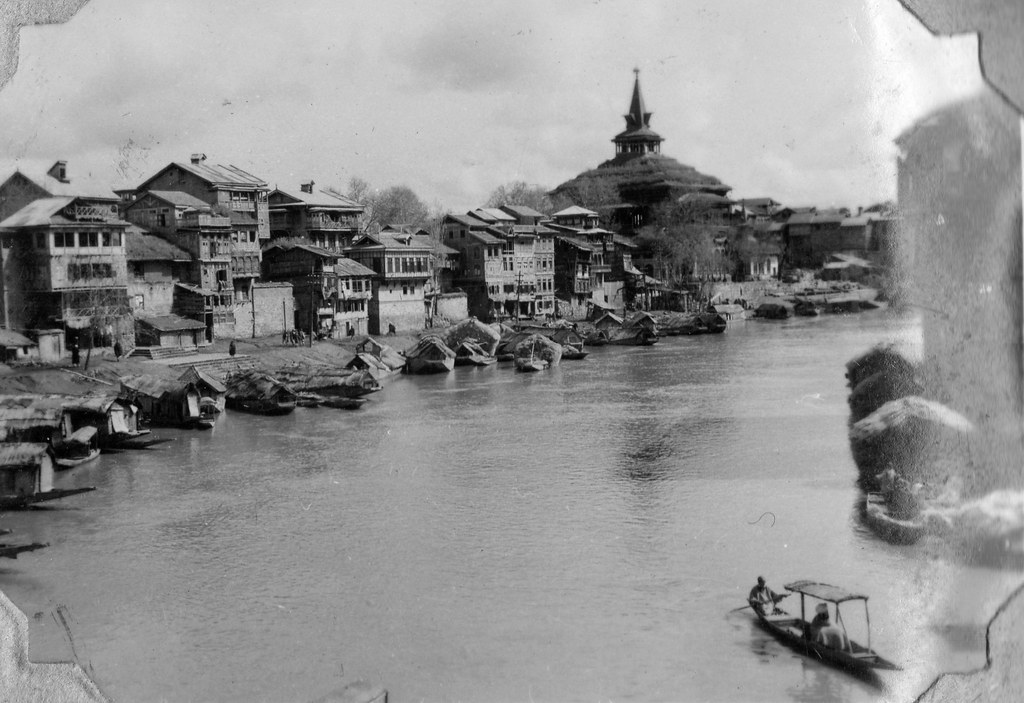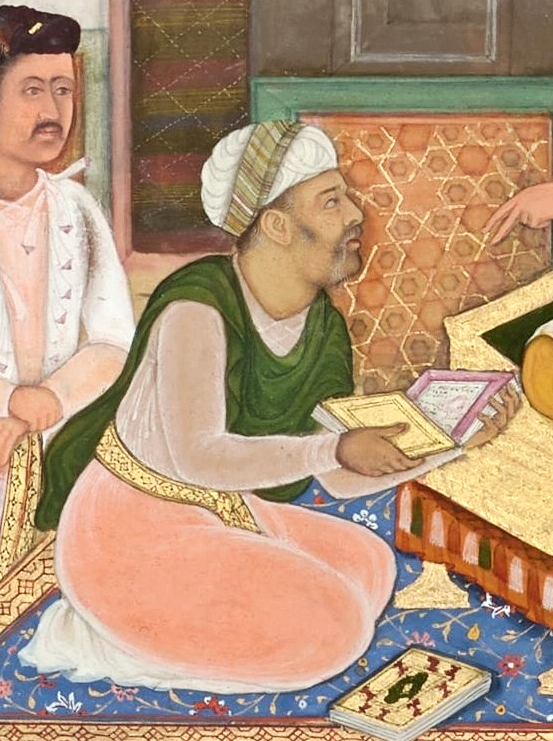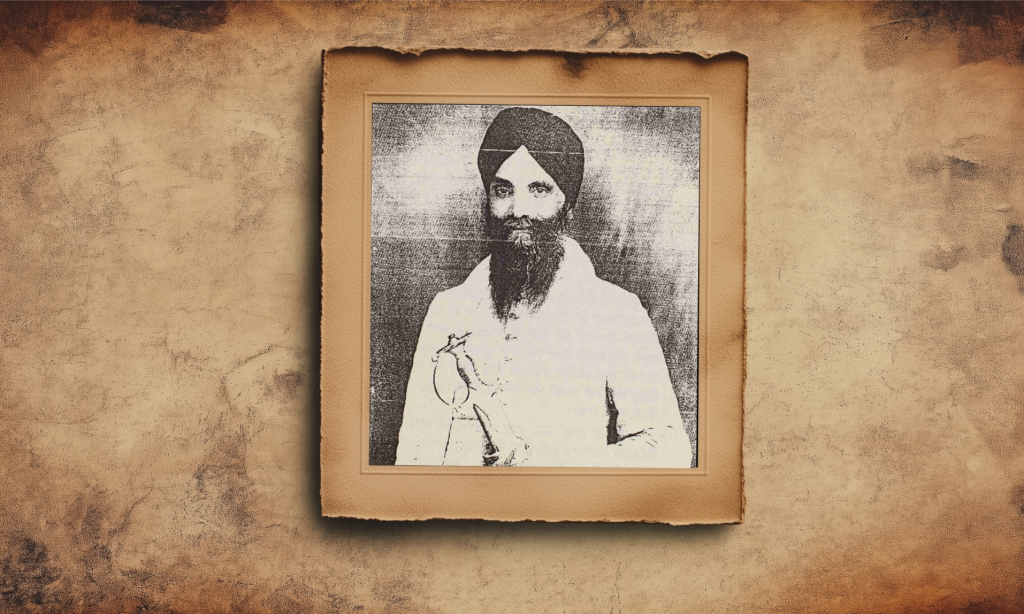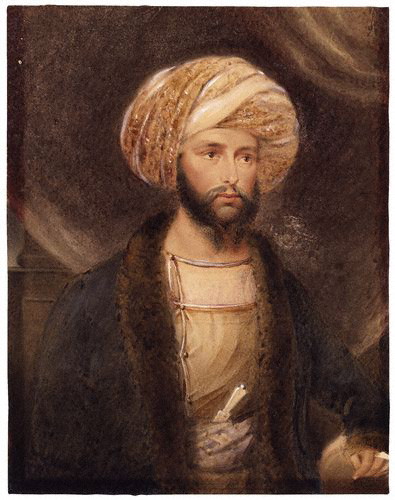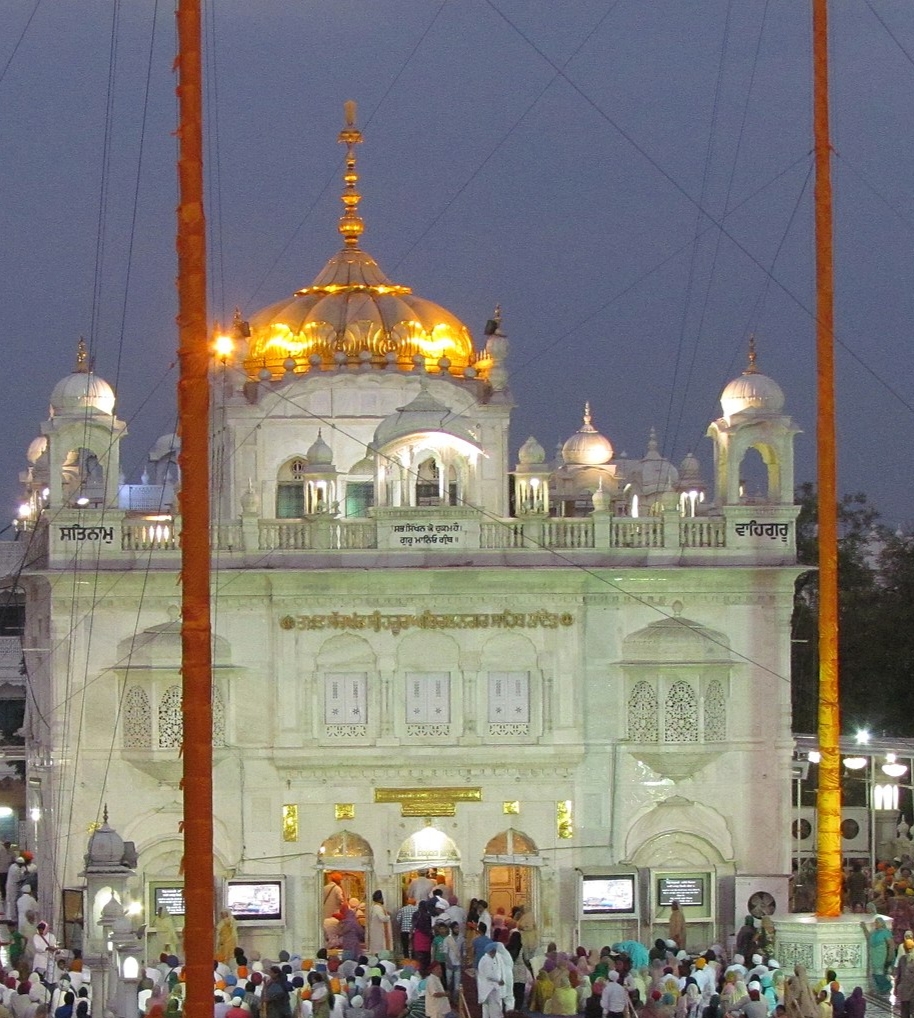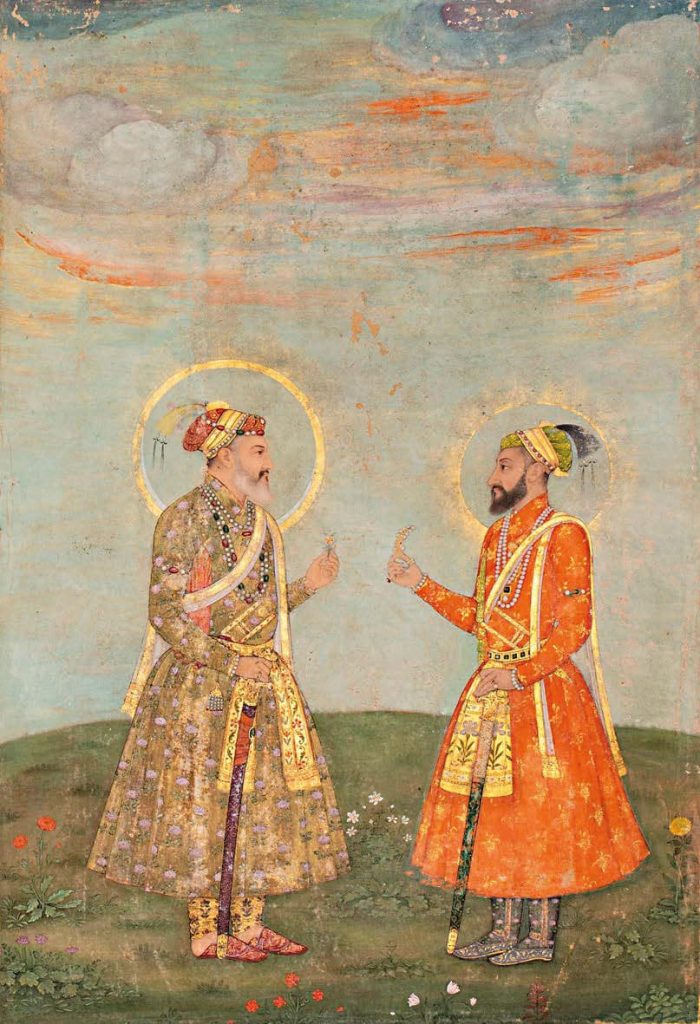ABDUL RASUL KASHMIRI, a native of Srinagar who was in trade at Amritsar as a shawl merchant, was for a time a close confidant of Maharaja Duleep Singh, the last Sikh King of the Punjab deposed by the British in 1849. Kashmir! acted as the deposed Maharaja`s liaison man with governments of Turkey and Egypt. In 1860, `Abdul Rasul moved from India to Egypt, and thence to London where he joined the Nile expeditionary force as an interpreter. Owing to his secret connection with the Mahdi, he was discharged from the service. He was again in England to seek redress when he met the deposed Maharaja Duleep Singh who employed
ABUL FAZL (1551-1602), principal secretary-cum-minister to Akbar, the Mughal emperor. He was an accomplished man of learning and was the author of two celebrated works, A`ini Akbari and Akbar-nama, the former being a description of Akbar`s administrative system and the latter a chronicle of the events of his reign. Like his father, Shaikh Mubarak, and brother, Faizi, Abul Fazl had Sufi leanings, and all three of them were a major influence in moulding the religious policy of the emperor. Born at Akbarabad on 14 January 1551, Abul Fazl took up service at the royal court in 1574, and through his uncommon wisdom and learning soon rose to become Akbar`s most trusted adviser.
ACHAL SAHIB, GURDWARA. sacred to Guru Nanak, is located on the boundary of Salho and Chahal villages along the Jalandhar Batala road, 6 km south of Batala (31M9\'N, 75°12\'E) in Gurdaspur district of the Punjab. The low mound on which the Gurdwara is situated, in close proximity of the ancient Hindu temple dedicated to Kartikeya, son of Lord Shiva, is popularly known as Achal Vatala. The Achal temple had since old times been a place of pilgrimage visited by sadhus from distant parts, especially during the annual fair held on the occasion of Sivaratri festival.
ACHCHHAR SINGH, JATHEDAR (1892-1976), a Gurdwara officiant and Akali politician who twice held office as Jathedar (provost) of...
ADAM, BHAI, also mentioned as Uddam in some chronicles, was, according to Giani Gian Singh, Twarikh Guru Khalsa, a Siddhu Jatt of Brar clan living at Vinjhu, a village near Bathinda (30°-14`N, 74°-58\'E). He had no male child and, advancing in years, he along with his wife came to Amritsar to devote himself to serving Guru Ram Das. Besides partaking of the holy sangat morning and evening, he daily brought two loads of firewood from the jungle, one of which he contributed to the Guru ka Langar, selling part of the second to buy food for himself and storing the remainder. Once on an extremely cold night a large number of Sikhs arrived to visit the Guru.
ADDAN SHAH, BHAI (1688-1757), third in succession to Bhai Kanhaiya, founder of the Sevapanthi sect, was born in 1688 in the village of Lau in Jhang district, now in Pakistan. His parents were of a devout temperament and he inherited from them a deeply religious bent of mind. He learnt Gurmukhi and got training in the exegesis of Sikh scriptural texts from Bhai Gurdas Dakkhani, a leading Sikh of Guru Tegh Bahadur`s time. He also remained in the company of Bhai Seva Ram, a disciple of and successor to Bhai Kanhaiya, for a long time and ultimately succeeded him as chief of the Sevapanthi sect.
ADALI, BHAI, of Chohla. village in present day Amritsar district of the Punjab, was a devoted Sikh contemporary...
ABBOTT, SIR JAMES (1807-1896), British Resident\'s assistant at Lahore, capital of the sikh kingdom, after the first Anglo - Sikh war (1845-46), was born on 12 March 1807, the son of Henry Alexius Abbott. Passing out of the military college of the East India Company at Addiscombe, England, Abbott received commission as a second lieutenant in the Bengal artillery in 1823. In November 1830, he joined the army of the Indus, under Sir John Keane, for the invasion of Afghanistan. In 1842, he was appointed assistant to the British Resident at Indore.
ABCHAL NAGAR, more correctly spelt Abichalnagar (abichal, lit. firmly fixed, unshakably rooted), i.e. City Everlasting, is the name Sikh tradition lias given Nanded, a district town in Maharashtra. The place is sacred to Guru Gobind Singh, who passed away here on 7 October 1708. The shrine honouring his memory is treated as a takht, seat constituting decisive religious authority for the Sikhs, and is named Takht Sachkhand Sri Hazur Sahib, Abchalnagar. The name was probably suggested by a Scriptural line abichal nagaru~gobind guru ka namu japat sukhu paia ram (rooted steadfast stands the City of the Master Lord where solace is attained by repeating the Name (GGS,pg 783), usually interpreted as referring to the City of Amritsar founded by Guru Ram Das, Nanak IV.
\'ABDULLA BHAI\', Abdul according to some Sikh chroniclers, was a Muslim minstrel who recited heroic balladry at Sikh congregations in the time of Guru Hargobind (1595-1644). Abdul was born in the village of Sursingh, now in Amritsar district of the Punjab. He first came to Amritsar in 1606 at the time of the installation ceremony for Guru Hargobind at the Akal Takht. According to Gurbilas Chhevin Patshahi, he and his companion, Bhai Nattha, sang the stanza on the occasion: The Throne everlasting Has by the Holy Guru\'s presence become haloed, Indescribable is its splendour, How may I sing its glory! Seeing the Guru, Both the sun and the moon were shamed.
- 1
- 2




